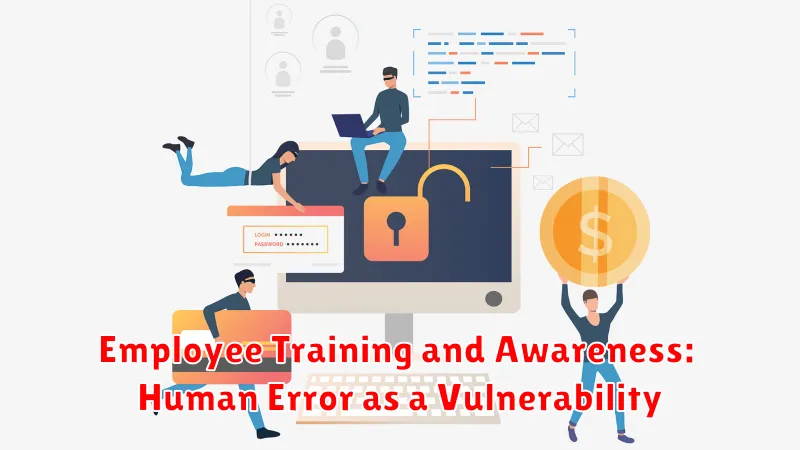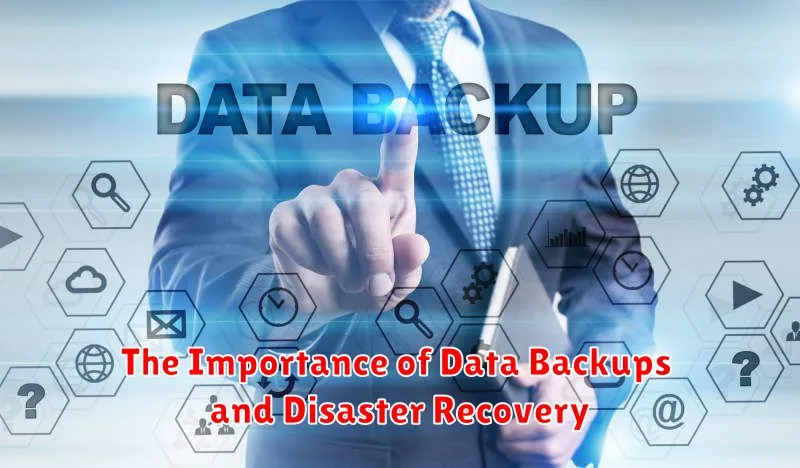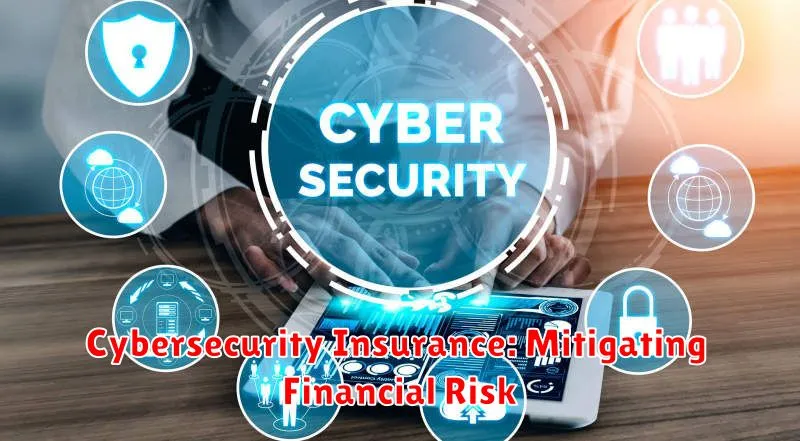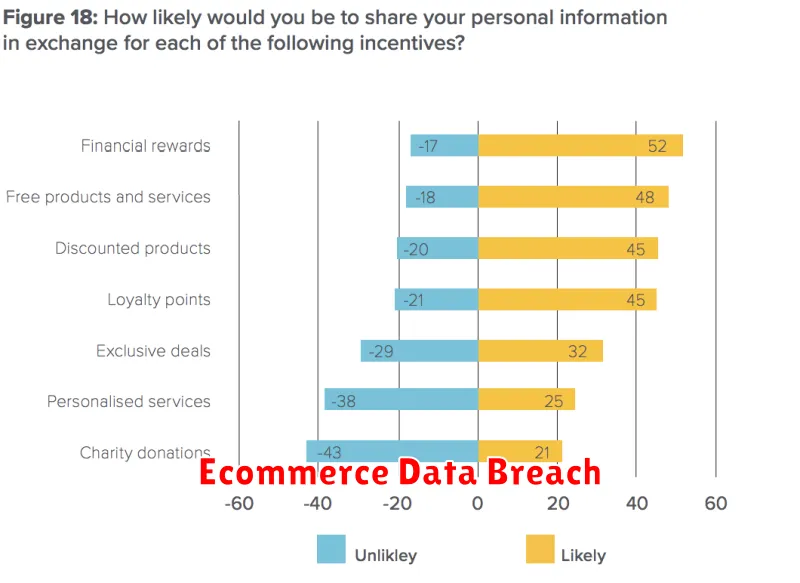In today’s digital age, online shopping has become an integral part of our lives. E-commerce businesses are thriving, offering consumers a wide array of products and services at their fingertips. However, with the convenience of online transactions comes a critical challenge: cybersecurity. As a business owner, it is no longer optional to prioritize cybersecurity for your e-commerce platform. The consequences of a data breach can be devastating, leading to financial losses, reputational damage, and loss of customer trust.
Ignoring cybersecurity in your e-commerce business is akin to leaving your storefront door wide open to thieves. Hackers are constantly looking for vulnerabilities to exploit, targeting sensitive data such as customer information, financial records, and proprietary business insights. A data breach can not only cost you money, but it can also damage your brand and deter potential customers from shopping with you. The risks are real, and the consequences are too severe to ignore.
Understanding the Stakes: Cyber Threats in the Ecommerce Landscape
The world of e-commerce is a tempting target for cybercriminals. They see an opportunity to steal sensitive customer data, disrupt operations, and extort money from businesses. The threats are real, and the consequences can be devastating.
Here are some of the most common cyber threats facing e-commerce businesses today:
- Data breaches: Hackers can steal customer information, including names, addresses, credit card numbers, and login credentials. This can lead to identity theft, financial losses, and reputational damage.
- Malware attacks: Malicious software can infect your website and systems, stealing data, disrupting operations, and even taking your website offline.
- Denial-of-service (DoS) attacks: These attacks can overwhelm your website with traffic, making it inaccessible to customers and causing significant financial losses.
- Phishing scams: Phishing attacks attempt to trick customers into giving up their personal information by impersonating legitimate businesses or organizations. This can lead to data breaches and financial losses.
- Ransomware: Ransomware attacks encrypt a business’s data and then demands a ransom payment to decrypt it. This can cripple operations and result in substantial financial losses.
These threats highlight the importance of strong cybersecurity measures. If you’re an e-commerce business, it’s vital to understand the risks and invest in robust defenses to protect your business, your customers, and your reputation.
Data Breaches: The Cost of Compromised Customer Information
In the digital age, data breaches are a growing concern for businesses of all sizes, especially those in the ecommerce industry. When customer information is compromised, the consequences can be severe and far-reaching, impacting not only the business’s bottom line but also its reputation and customer trust.
The cost of a data breach can be significant and include various factors such as:
- Financial Losses: Stolen credit card information can lead to fraudulent transactions, resulting in chargebacks and financial losses for the business.
- Legal Costs: Companies may face fines and legal action from regulatory bodies and affected customers.
- Reputational Damage: Data breaches can damage the reputation of a business, making it difficult to attract and retain customers.
- Loss of Customer Trust: Customers may lose trust in a business that has experienced a data breach, leading to decreased sales and brand loyalty.
- Business Disruption: Investigating and resolving a data breach can disrupt business operations, leading to lost productivity and revenue.
Beyond the immediate costs, data breaches can also have long-term consequences, such as:
- Reduced Customer Loyalty: Customers may be hesitant to do business with a company that has experienced a data breach, even after the issue has been resolved.
- Increased Insurance Premiums: Insurance companies may increase premiums for businesses that have experienced data breaches.
- Difficulty Obtaining Funding: Investors may be hesitant to invest in a company with a history of data breaches.
In conclusion, data breaches can have a devastating impact on an ecommerce business. The costs associated with a data breach can be significant and long-lasting, affecting financial stability, reputation, customer loyalty, and overall business success. Therefore, implementing robust cybersecurity measures is essential to protect customer data and mitigate the risks of a data breach.
Financial Fraud: Protecting Your Business and Your Customers
In the digital age, e-commerce has become an essential part of our lives. However, with the convenience of online shopping comes the risk of financial fraud. This threat can significantly impact your business and your customers, jeopardizing their trust and your reputation.
Fraudsters employ various tactics to steal sensitive information, including:
- Phishing scams
- Data breaches
- Malware attacks
- Credit card fraud
The consequences of such attacks can be devastating, leading to:
- Financial losses
- Damage to your brand reputation
- Legal liabilities
- Loss of customer trust
To protect your business and your customers from financial fraud, it’s crucial to implement robust cybersecurity measures. These measures can include:
- Strong passwords and multi-factor authentication
- Regular security updates for software and systems
- Data encryption
- Fraud detection and prevention systems
- Employee training on cybersecurity best practices
By taking these steps, you can create a secure online environment for your customers and protect your business from the financial repercussions of fraud.
Website Security: Preventing Attacks and Downtime
In the competitive landscape of e-commerce, website security is not a luxury, but a necessity. A secure online store is the bedrock of trust and confidence, essential for attracting and retaining customers. Neglecting website security can lead to devastating consequences, including financial losses, reputational damage, and loss of customer trust.
Here’s why cybersecurity is non-negotiable for your e-commerce business:
Data Breaches: E-commerce websites hold sensitive customer data such as names, addresses, credit card details, and order histories. A data breach exposes this valuable information to malicious actors, potentially leading to identity theft and financial fraud.
Financial Losses: Cyberattacks can result in significant financial losses for e-commerce businesses. This can involve direct financial theft, chargebacks from fraudulent transactions, and the cost of recovery from a security breach.
Reputation Damage: A security breach can severely damage your brand’s reputation, eroding customer trust. Customers may hesitate to provide personal information or make purchases on a website that has been compromised.
Website Downtime: Cyberattacks can disrupt website functionality, leading to prolonged downtime. This can negatively impact sales, customer service, and overall business operations.
Preventing Attacks and Downtime: A multi-layered approach to website security is crucial. Here are some key elements:
Strong Passwords: Encourage users to create strong, unique passwords for their accounts and implement multi-factor authentication for additional security.
Regular Updates: Keep your website software, plugins, and operating systems up-to-date with the latest security patches. This helps to mitigate vulnerabilities that can be exploited by attackers.
Security Plugins: Implement security plugins and firewalls to detect and prevent malicious activity. These tools can monitor traffic, identify suspicious behavior, and block attacks.
Data Encryption: Use encryption to protect sensitive data, such as customer information and financial transactions, while it is being transmitted and stored.
Regular Security Audits: Conduct regular security audits to identify vulnerabilities and ensure that your security measures are effective.
Investing in website security is an investment in your e-commerce business’s future. By prioritizing cybersecurity, you can build a secure online presence that inspires trust, protects your valuable data, and minimizes the risk of attacks and downtime.
Building a Secure Ecommerce Platform: Essential Features to Look For
Building a secure e-commerce platform is crucial for any business that operates online. This means implementing robust security measures to protect sensitive customer data, prevent fraud, and ensure a safe and trustworthy shopping experience. Here are some essential features to look for when building a secure e-commerce platform:
SSL Certificate: This certificate encrypts data transmitted between your website and customers’ browsers, ensuring that sensitive information like credit card details remains confidential. Look for certificates with the highest level of encryption (e.g., SHA-256) and a valid trust chain.
Strong Password Policy: Encourage customers to create strong and unique passwords for their accounts. Implement a password policy that requires a combination of uppercase and lowercase letters, numbers, and special characters. You can also offer two-factor authentication for an extra layer of security.
Secure Payment Gateway: Choose a reputable payment gateway that meets industry security standards (e.g., PCI DSS) and offers fraud detection tools. Avoid storing sensitive payment information on your server. Instead, use a gateway that tokenizes customer data, replacing sensitive information with unique tokens.
Regular Security Audits: Conduct regular security audits of your e-commerce platform to identify and address vulnerabilities. These audits should include penetration testing, vulnerability scanning, and code reviews. Engage with security professionals to ensure a comprehensive assessment.
Data Encryption: Encrypt all sensitive data stored on your servers, including customer information, financial data, and order details. Use strong encryption algorithms (e.g., AES-256) to safeguard data from unauthorized access.
Secure Logging and Monitoring: Implement a robust logging system to track all user activity and system events. This helps in identifying suspicious behavior and potential threats. You can use security information and event management (SIEM) tools for centralized logging and monitoring.
Regular Software Updates: Keep your e-commerce platform and its underlying software updated regularly to patch security vulnerabilities. Patching addresses known security flaws and helps prevent attackers from exploiting them. Ensure you have a system for managing software updates efficiently.
User Education: Educate your customers about online security best practices, such as avoiding suspicious links, using strong passwords, and reporting any suspicious activity. Encourage them to be vigilant and report any security concerns to your support team.
By incorporating these essential features, you can build a secure e-commerce platform that safeguards your business and your customers’ trust. Remember, cybersecurity is an ongoing process. Continuous monitoring, vigilance, and proactive security measures are essential to protect your e-commerce platform from evolving threats.
PCI DSS Compliance: Meeting Industry Security Standards
For any e-commerce business, PCI DSS compliance is essential for ensuring the safety of customer data and maintaining trust. The Payment Card Industry Data Security Standard (PCI DSS) is a set of comprehensive security standards designed to protect sensitive cardholder data. By adhering to these standards, you demonstrate your commitment to safeguarding financial information, mitigating the risk of data breaches, and ultimately protecting your business from costly fines and reputational damage.
Compliance with PCI DSS entails a rigorous set of requirements across six key areas:
- Build and Maintain a Secure Network: Implementing strong firewalls, intrusion detection systems, and secure network segmentation is critical for protecting your systems from unauthorized access.
- Protect Cardholder Data: This involves implementing robust encryption methods, tokenization, and secure data storage practices to prevent unauthorized access and use of sensitive information.
- Maintain a Vulnerability Management Program: Regularly scanning your systems for vulnerabilities and promptly patching any discovered weaknesses is essential to stay ahead of potential security threats.
- Implement Strong Access Control Measures: Enforcing strong passwords, multi-factor authentication, and role-based access controls helps restrict access to sensitive information only to authorized personnel.
- Regularly Monitor and Test Networks: Continuously monitoring your systems for suspicious activities and conducting regular penetration testing helps identify and address potential security weaknesses.
- Develop a Secure Software Development Lifecycle: Integrating security measures into your software development process from the start ensures that applications are built with security in mind.
By adhering to these comprehensive requirements, e-commerce businesses can significantly reduce their risk of data breaches, comply with industry regulations, and build trust with customers.
Payment Gateway Security: Securely Processing Transactions
In the online realm, trust is paramount. For eCommerce businesses, this trust is built on the foundation of secure transactions. This is where a robust payment gateway plays a crucial role. Acting as a secure intermediary, a payment gateway facilitates the transfer of funds between your customers and your business, shielding sensitive data and ensuring secure processing.
Imagine your customer entering their credit card details to purchase your products. With a secure payment gateway, this information is not stored on your server, but rather encrypted and securely transmitted to the payment processor. This encryption process, often utilizing industry-standard protocols like SSL (Secure Sockets Layer), renders the data unreadable to unauthorized individuals, making it virtually impossible to intercept.
Furthermore, reputable payment gateways offer features like tokenization, which replaces sensitive card details with unique tokens. These tokens are virtually useless without access to the payment gateway’s database, further enhancing security. Additionally, advanced fraud detection systems built into these gateways actively analyze transactions for suspicious patterns, minimizing the risk of fraudulent activities.
Choosing a secure payment gateway is a critical step towards establishing trust with your customers. It demonstrates your commitment to their safety and ensures a smooth, worry-free transaction experience, ultimately contributing to customer satisfaction and brand loyalty.
Strong Passwords and Two-Factor Authentication: The First Line of Defense
In the digital age, where online transactions are the norm, cybersecurity is no longer an option but a necessity. Your ecommerce business, with its sensitive customer data and financial transactions, is a prime target for cybercriminals. Strong passwords and two-factor authentication (2FA) are the first line of defense against these threats, acting as a robust barrier to protect your data and your customers’ trust.
Imagine a scenario where your customer’s credit card details fall into the wrong hands. Not only is this a massive breach of trust, but it could also lead to financial losses, legal repercussions, and irreparable damage to your brand reputation. This is why strong passwords and 2FA are essential for every ecommerce business.
Strong passwords are not just a random string of characters; they are unique, complex, and difficult to guess. They should include a combination of uppercase and lowercase letters, numbers, and special characters. By implementing strong password policies and encouraging your customers to do the same, you create a significant obstacle for cybercriminals.
Two-factor authentication adds an extra layer of security by requiring users to provide two forms of identification before granting access to an account. This can be a combination of something you know (like a password) and something you have (like a phone or an authentication app). 2FA significantly reduces the risk of unauthorized access, even if a password is compromised.
By investing in strong password practices and implementing 2FA, you are taking the first critical steps towards securing your ecommerce business and safeguarding your customers’ data. These simple yet powerful measures can make a world of difference in preventing breaches, maintaining customer trust, and ensuring the long-term success of your online venture.
Employee Training and Awareness: Human Error as a Vulnerability

One of the biggest vulnerabilities in any organization, especially in e-commerce, is human error. Employees, regardless of their experience or role, can make mistakes that can compromise your business’s cybersecurity. From clicking on malicious links to falling prey to phishing scams, these errors can open doors for attackers to steal sensitive data, disrupt operations, or even cause financial losses.
To mitigate this risk, employee training and awareness are paramount. Educating your team about cybersecurity best practices, common threats, and how to identify suspicious activity is crucial. This includes:
- Teaching them about different types of cyber threats, such as phishing, malware, and social engineering.
- Emphasizing the importance of strong passwords, multi-factor authentication, and secure browsing habits.
- Providing regular security updates and training sessions to keep them informed about the latest threats.
- Encouraging employees to report any suspicious activities they encounter, whether it be a strange email or a request for sensitive information.
By investing in comprehensive employee training and awareness programs, you can significantly reduce the risk of human error and strengthen your e-commerce business’s overall cybersecurity posture.
Regular Security Audits and Updates: Staying Ahead of Threats

In the dynamic world of e-commerce, where sensitive customer data is constantly flowing, neglecting cybersecurity can be a recipe for disaster. Regular security audits and updates are essential for staying ahead of evolving threats and ensuring the safety of your business and customers. These practices form the bedrock of a robust security posture, preventing breaches and maintaining trust.
Security audits act as a comprehensive health check, revealing potential vulnerabilities within your systems. They scrutinize your network, applications, and infrastructure, identifying weak points that malicious actors could exploit. By proactively addressing these vulnerabilities, you significantly reduce the risk of successful attacks.
Complementing audits are software updates, which patch known security flaws and vulnerabilities. Software providers constantly release updates to address newly discovered threats and enhance security features. Keeping your software up-to-date is crucial to ensure your systems are protected against the latest attacks.
The benefits of regular security audits and updates extend beyond preventing breaches. They also demonstrate your commitment to data protection, fostering trust with customers and partners. In today’s digital landscape, strong cybersecurity practices are essential for building a successful and sustainable e-commerce business.
The Importance of Data Backups and Disaster Recovery

In the fast-paced world of e-commerce, data is everything. From customer information to product details, inventory records, and financial transactions, your data forms the very foundation of your business. A single data breach or disaster could cripple your operations, leading to significant financial losses, reputational damage, and even legal ramifications. This is where the importance of data backups and disaster recovery strategies becomes paramount.
Data backups serve as a safety net, ensuring that you have a copy of your critical data readily available in case of data loss. This loss could be due to accidental deletion, hardware failure, malware attacks, or natural disasters. Regular backups allow you to restore your data quickly and efficiently, minimizing downtime and potential business disruption.
Disaster recovery plans go hand-in-hand with backups, providing a roadmap for how to respond to and recover from a major incident. This plan should outline steps for data recovery, system restoration, and business continuity. A comprehensive disaster recovery plan should address various scenarios, including power outages, floods, fires, cyberattacks, and other potential threats. By having a well-defined plan in place, you can mitigate the impact of a disaster, allowing you to bounce back quickly and resume operations smoothly.
The investment in data backup and disaster recovery solutions is a wise one for any e-commerce business. It’s not a matter of “if” but “when” something will happen. By taking proactive measures to safeguard your data, you can protect your business, maintain customer trust, and ensure its long-term sustainability.
Cybersecurity Insurance: Mitigating Financial Risk

Cyberattacks are becoming increasingly sophisticated and frequent, posing a significant threat to ecommerce businesses. Data breaches, ransomware attacks, and other cyber incidents can result in substantial financial losses, reputational damage, and operational disruptions. To mitigate these risks, cybersecurity insurance has emerged as an essential tool for ecommerce businesses.
Cybersecurity insurance provides financial protection against various cyber-related risks, including:
- Data breach costs: Covering expenses for notifying affected individuals, credit monitoring services, and legal fees.
- Ransomware payments: Reimbursing businesses for ransom payments demanded by cybercriminals.
- Business interruption: Compensating for lost revenue and operational costs during a cyberattack.
- Forensic investigation: Covering the costs of hiring cybersecurity experts to investigate and remediate a cyber incident.
- Cyber extortion: Protecting businesses against extortion attempts by cybercriminals.
By obtaining cybersecurity insurance, ecommerce businesses can transfer the financial burden of a cyberattack to an insurance provider, allowing them to focus on recovery and business continuity. It helps to:
- Reduce financial risk: Providing financial protection against potential cyber threats.
- Enhance business resilience: Supporting recovery efforts and minimizing downtime during a cyber incident.
- Improve customer trust: Demonstrating a commitment to cybersecurity and data protection.
- Comply with regulations: Meeting regulatory requirements related to data security and breach notification.
Ecommerce businesses should carefully evaluate their cybersecurity risks and consider the coverage offered by different cybersecurity insurance policies. Choosing the right policy that aligns with their specific needs and vulnerabilities can significantly strengthen their financial security and minimize the impact of cyberattacks.
Legal and Regulatory Compliance: Avoiding Penalties and Reputational Damage
The world of e-commerce is a highly regulated space, and failing to comply with the numerous laws and regulations can result in severe consequences for your business. From data breaches to payment processing vulnerabilities, the potential for legal and regulatory issues is a constant threat. Non-compliance can lead to hefty fines, lawsuits, and irreparable damage to your brand’s reputation.
Examples of critical regulations you must be aware of include:
- The General Data Protection Regulation (GDPR): This European Union law governs how personal data is collected, processed, and stored, impacting businesses worldwide.
- The Payment Card Industry Data Security Standard (PCI DSS): This set of security standards protects credit card information and requires stringent security measures for businesses that process card payments.
- The California Consumer Privacy Act (CCPA): This law grants California residents certain rights concerning their personal data, including the right to know what data is collected and how it is used.
Beyond these key regulations, individual states and countries have their own laws regarding data privacy and security. Staying informed about these laws and implementing appropriate security measures is crucial to protect your business from legal and regulatory risks.
Failure to comply with these regulations can have serious ramifications. You could face:
- Fines and penalties: Regulatory bodies impose hefty fines for non-compliance, potentially crippling your business.
- Lawsuits and legal action: Customers whose data is compromised may sue your business, leading to costly legal battles.
- Reputational damage: A data breach or security incident can significantly damage your brand’s reputation, impacting trust and customer loyalty.
By prioritizing cybersecurity, you demonstrate your commitment to customer data protection and build trust in your brand. Implementing strong security measures, staying informed about regulatory changes, and fostering a culture of security awareness are essential steps to mitigate legal and regulatory risks and protect your e-commerce business from potential harm.

